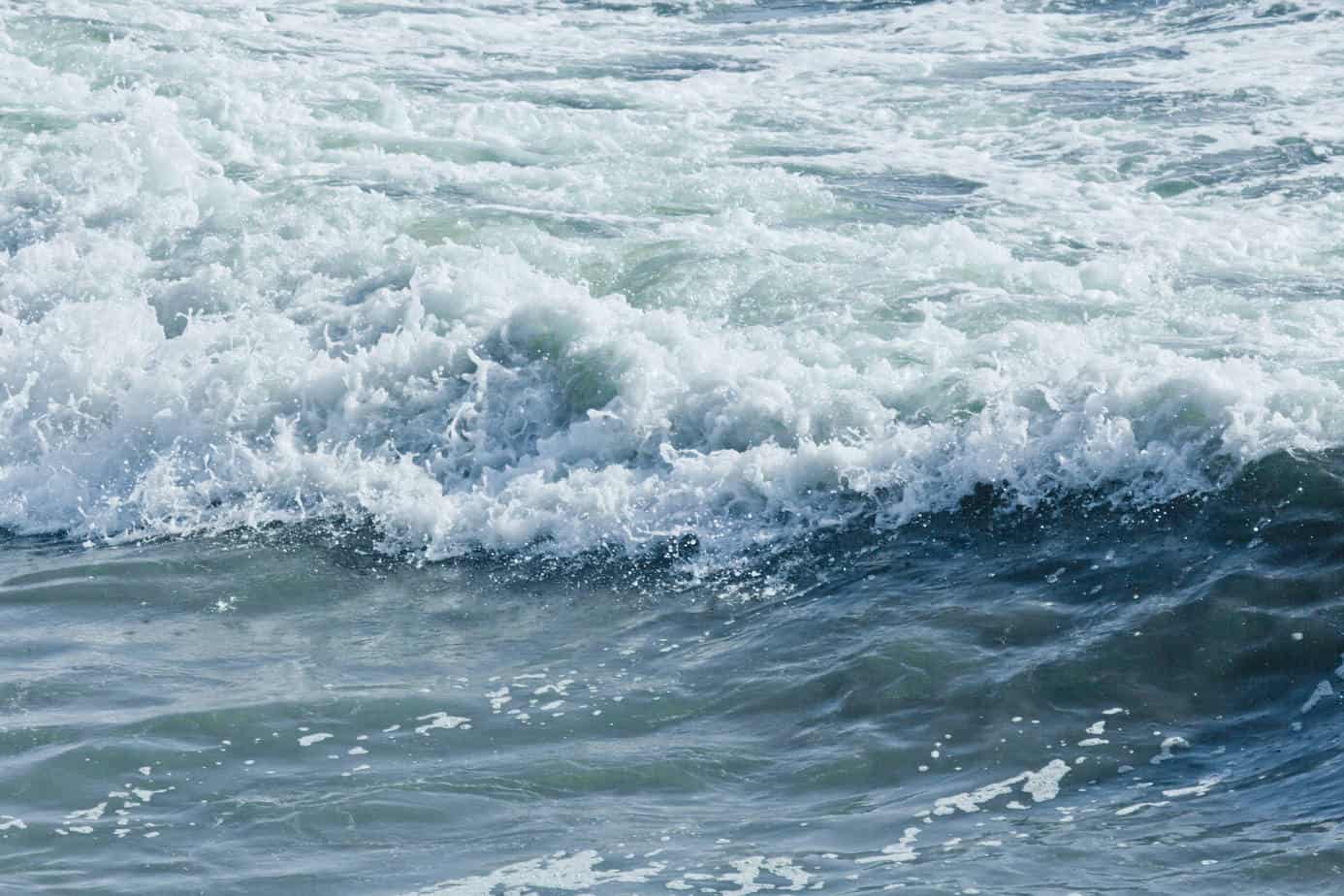Riptides, technically rip currents, claim lives every year at beaches and even lakes across the country. Every year 100 or more people die from drowning after being pulled out to sea in a rip current. Up to 80% of rescues by lifeguards a surf beaches are related to rip currents. So, knowing what to do if you get caught in a riptide is important if you plan on visiting a beach. We have included everything you need to know about riptides in this post so that you can go to the beach with confidence.
First of all, what is a rip current? A rip current is like a strong river of water in the ocean that moves away from the shore. It’s different from the undertow, which is the water that pulls back into the ocean after a wave break. A rip current also pulls on the surface of the water and can go as much as 50 to 100 feet away from the shoreline. A rip current doesn’t pull you underwater, it just pulls you out farther to sea, and it can do so fast! You’ll definitely feel the strong pull if you get caught in one.
What should you do?
The first thing to remember if you get pulled out to sea in a rip current is to relax. Don’t fight it! Avoid panicking. Rather, stay relaxed and stay afloat. It seems counter intuitive, but you shouldn’t fight against the rip current because you won’t win. Rip currents are very strong and even the greatest swimmers can’t avoid being pulled out in them. They can move as quickly as 8 feet per second, although more typical speeds are 1-2 feet per second. That’s fast!
Once you’ve been pulled out, continue focusing on staying afloat and signal for help if possible. The key is to avoid using up your energy trying to fight against the rip current.
If you feel like you have the energy to swim, try swimming parallel to the shore. That will help take you out of the rip current, allowing you to find a way back to the shore.
Sometimes rip currents are circular and you can float back to shore if you’re able to stay afloat or tread water. Most times, you’ll end up exiting the rip current naturally and then you can swim back to shore.
Preventing Accidents
Whenever you go to the beach, be aware that a riptide may appear or may already be present in the ocean. Avoid swimming alone or on beaches where lifeguards aren’t present. If others are with you, they can help keep an eye on you and notice if you get caught in a rip current. If you notice that someone is floating out to sea, alert a lifeguard or call 911. Remember, many drownings also occur when trying to help someone else caught in a rip current. Unless you are a trained lifeguard, limit yourself to shouting instructions and alerting those who are trained to help.
Another way to prevent accidents is by improving your swimming skills. The stronger a swimmer you are, the less tired you’ll get in these situations. However, the most important thing to remember if you get caught in a riptide is to focus on staying afloat and staying calm. Many people drown because they try to fight against the riptide and exhaust themselves.
Want to improve your swimming skills? Sign up for classes at Blue Buoy! Give us a call today!



Leave A Comment